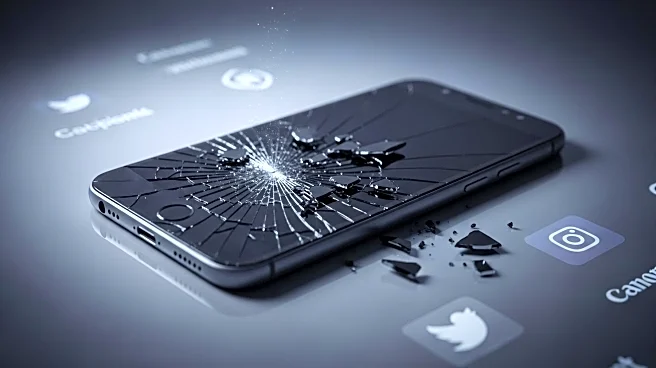What is the story about?
What's Happening?
The rapid dissemination of violent content on social media platforms has raised significant concerns among mental health professionals and media experts. Recent incidents, such as the shooting of conservative political speaker Charlie Kirk at Utah Valley University and the stabbing of Ukrainian refugee Iryna Zarutska on a North Carolina train, have been widely shared online, often without warning. Experts warn that exposure to such graphic content can have detrimental effects on mental health, causing feelings of shock, anxiety, and sadness. Mental health counselor Catherine Del Toro emphasizes the importance of being mindful of one's emotional response to such content and advises caution or avoidance of viewing violent footage.
Why It's Important?
The widespread availability of violent content on social media platforms poses a risk of desensitization and dehumanization among viewers. As people become accustomed to seeing graphic images, they may become numb to the violence and lose empathy for the victims. This trend has broader implications for societal attitudes towards violence and the mental well-being of individuals. The responsibility of social media platforms to manage and regulate such content is increasingly under scrutiny, as they play a crucial role in shaping public perception and mental health outcomes.
What's Next?
Social media platforms may face increased pressure to implement stricter content moderation policies to prevent the spread of violent imagery. Mental health professionals and advocacy groups are likely to continue raising awareness about the psychological impact of such content, urging users to set boundaries and practice self-care. Additionally, there may be calls for legislative action to hold platforms accountable for the content they host and to protect users from harmful exposure.
Beyond the Headlines
The ethical implications of sharing violent content online extend beyond individual mental health concerns. There is a need to balance the public's right to information with the potential harm caused by graphic imagery. This issue also highlights the cultural shift towards a more desensitized society, where the normalization of violence in media could influence real-world behaviors and attitudes.
















